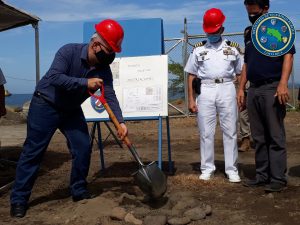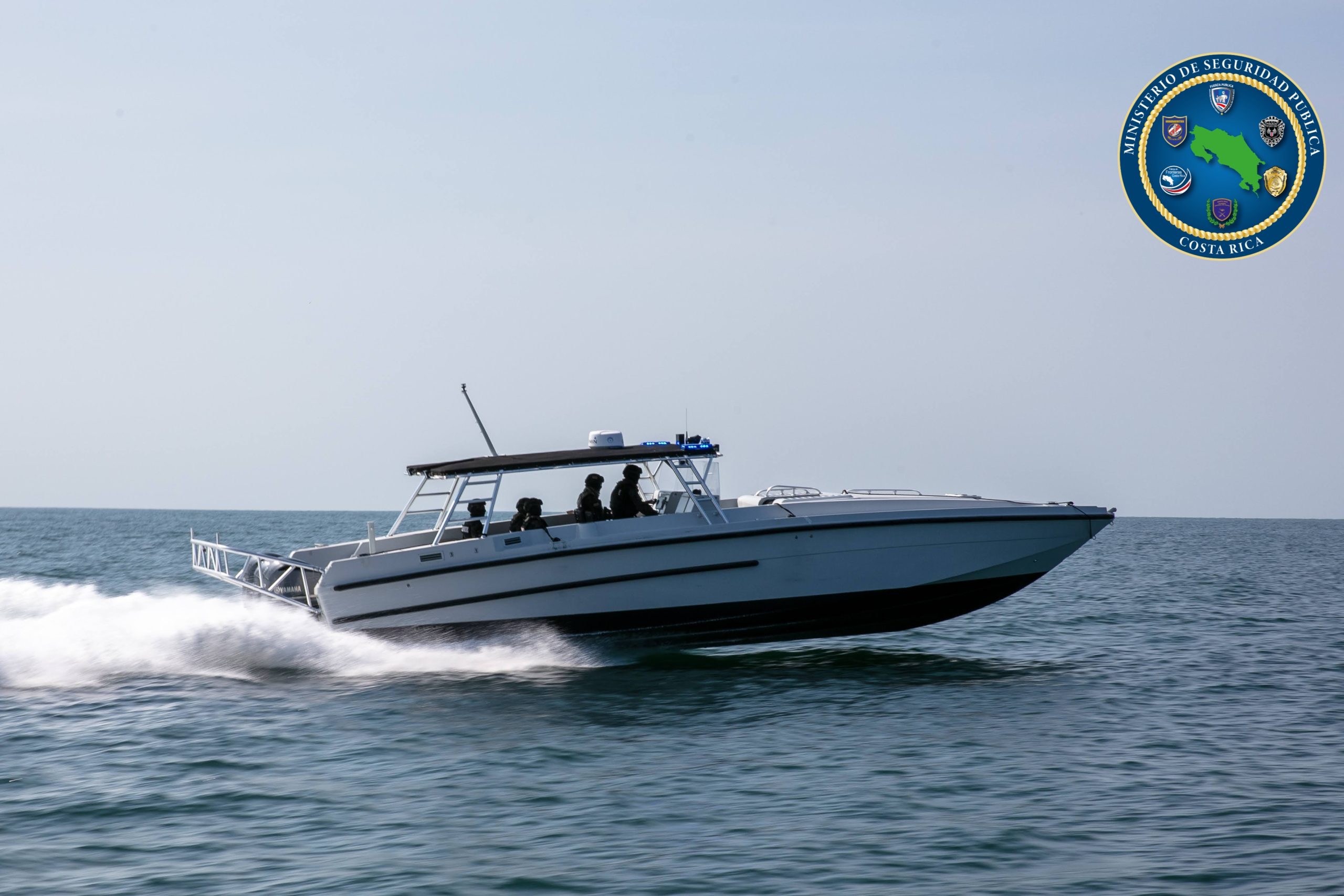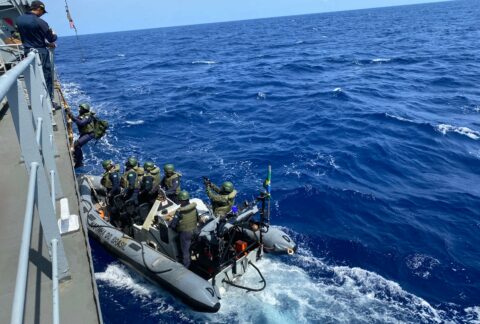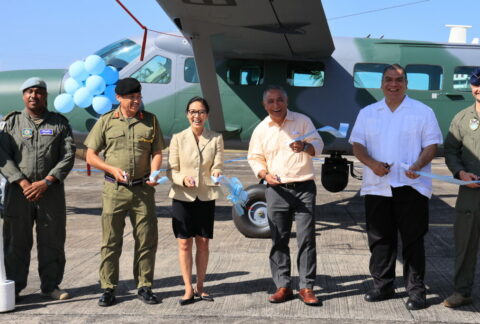Costa Rica has new tools to confront transnational organized crime, thanks to a U.S. donation to security forces on February 18, 2021.
The aid consists of two Tampa Yacht high-speed interceptors, the repair of two Eduardoño vessels, and funding to build a training and maintenance center at Puerto Caldera Coast Guard Station, Puntarenas province, Costa Rican Minister of Public Security Michael Soto said. At this center, officers will be able to train in vessel repairs used for surveillance in Costa Rican and international waters, he added.
The building will measure 7,000 square meters, and its construction will cost $1.5 million, donated entirely by the U.S. government. Facilities will include 12 classrooms for officer training and a hangar for vessel maintenance and repair.

“It’s amazing how fast the Costa Rican Coast Guard is growing and evolving. With these vessels and this new project for vessel maintenance, we join you, strategic partners in security, as we build a safer and stronger Costa Rica and region,” U.S. Embassy Chargé d’Affaires in Costa Rica Gloria Berbena said during the handover ceremony and the beginning of work on the training center. “As our world continues to change, we will face new threats and challenges together; the United States and Costa Rica will continue to face those challenges, building a stronger and safer hemisphere.”
“It’s amazing how fast the Costa Rican Coast Guard is growing and evolving. With these vessels and this new project for vessel maintenance, we join you, strategic partners in security, as we build a safer and stronger Costa Rica and region,” U.S. Embassy Chargé d’Affaires in Costa Rica Gloria Berbena.
The two Tampa Yacht intercepting speedboats have capacity for three outboard engines and come with state-of-the-art communication equipment, including radars and intercoms. The cost of both vessels, and repairs on the Eduardoño vessels, is $2.3 million, meaning the total U.S. donation exceeds $3.8 million.
“In the history of our country, the national Coast Guard service and the police in general have never had the capacity and power that we have at this time. This is without a doubt the result of government efforts and help from friendly countries such as the United States, for whom we have enormous appreciation and respect, and with whom we have worked together very hard for some years now,” Soto said. “Our approach is to fight narcotrafficking directly, without any fear […]. This is a regional issue that affects all countries, production countries, transit countries like us, and consumer countries; this is a strategic alliance with all the countries in the region.”
Costa Rica ended 2020 with the largest amount of drugs seized in its history, seizing 56.7 tons of cocaine, an increase of 56 percent compared to 2019; and 14.4 tons of marijuana, 45 percent more than in 2019, Reuters reported.









